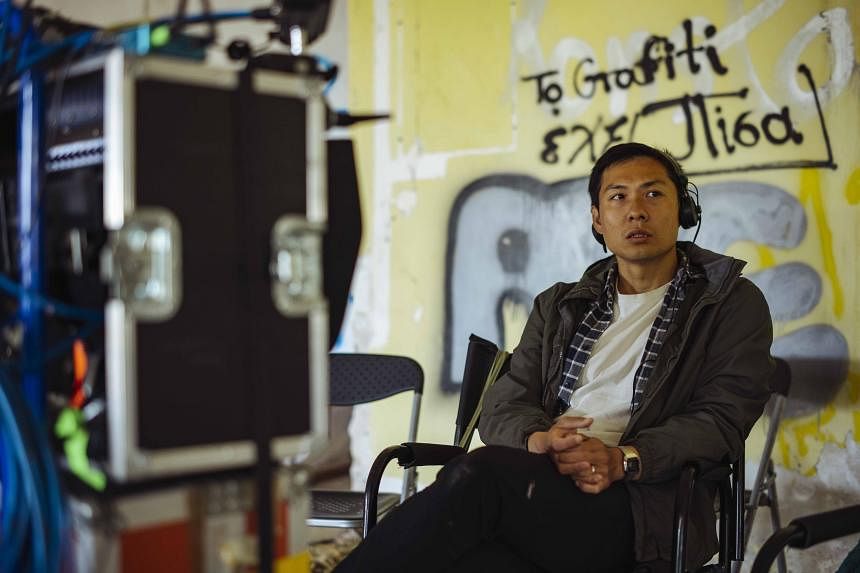SINGAPORE - Ask Singapore film-maker Anthony Chen what it was like to make his English-language feature film debut with a cast that includes the Oscar-nominated English actress-singer Cynthia Erivo, and he will remind you that Drift is a modestly budgeted movie which happens to have a big name in it.
“I wouldn’t use the words ‘Hollywood movie’. It’s not financed by a studio like Sony or Warner Bros. Just because it’s in English doesn’t mean you’re working on a big Marvel film,” says the 39-year-old over the phone from his home in Hong Kong.
Opening exclusively at The Projector on April 4, Drift might be a tiny project by Hollywood standards, but it still cost more to make than either of Chen’s award-winning Singapore-based films, Ilo Ilo (2013) and Wet Season (2019), he says.
He declined to reveal Drift’s budget.
Because of the comparatively higher wages of the crew and labour laws concerning allowable working hours, Chen says he had to curb his perfectionist tendencies while working on the film, which was shot mainly in Greece, in the region of Attica and on the island of Aegina.
When shooting Wet Season, for example, he once asked for 33 takes before he was satisfied.
On the set of Drift, the need to get everything done within the 30-plus days scheduled for filming made him uneasy. The film’s shooting ratio – the running time of raw footage divided by the running time of the finished film – left little margin for error.
“I was stressed out. I am not used to that kind of shooting ratio. I had anxiety about whether I had covered all the material, whether I should have done more takes,” Chen says.
“In Singapore, I could shoot 12 hours a day. In Greece, I was shooting 10 hours a day, Mondays to Fridays, even though we had to get through so much material. We averaged three takes. The maximum was about five,” he adds.
In Greece, locations could be up to 80km apart, requiring travel time that ate into his filming hours.
“In Singapore, sometimes we went over time. But on Drift, we didn’t have the budget to do that,” he says.
The unforgiving timeframe required the production team to perform at a high level.
Chen says: “It means that everyone needed to hit those marks, be it the crew, the heads of departments or the actors. Everyone there was very efficient and very professional.”
Drift’s main character Jacqueline – played by Erivo, who received a Best Actress Oscar nomination for her portrayal of American abolitionist Harriet Tubman in the biopic Harriet (2019) – has flashbacks in which she is back in Liberia with her family, before the outbreak of war caused her to flee to Greece.
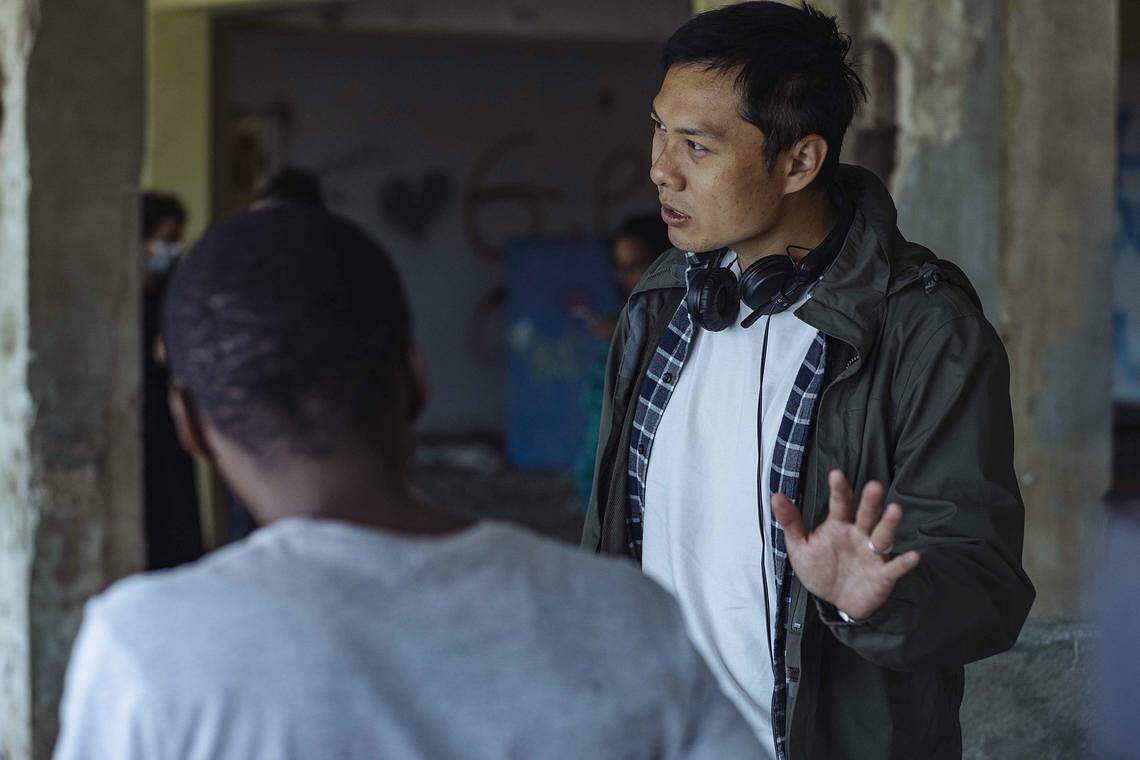
In the present day, she is homeless and struggling to survive in a seaside city filled with tourists who go there for fun and the sun, and to see ancient ruins.
The refugee meets American tour guide Callie (American actress Alia Shawkat), and the two women bond over their shared feeling that they do not belong.
Several scenes take place on a beach crowded with tourists. To avoid the throng of real beachgoers that would interfere with the filming, the team began shooting in March 2022, a month or so before May, which marks the start of the tourist season, says Chen.
The trade-off for the peace and quiet was that most businesses, such as small restaurants known as tavernas, were shuttered then.
“The beaches were closed and the tavernas were mostly closed. We had to dress all of that up and use extras to play the tourists on the beach. We basically had to create a holiday resort,” Chen says.
In 2022, with much of the world still dealing with pandemic lockdowns, moving the crew to West Africa to film the Liberia scenes was not possible, so the scenes set in that tropical area had to be filmed in Greece, which has a dry Mediterranean climate.
“We scoured the country and eventually found a house that we could transform so that it looked like a typical West African house. We transplanted a lot of plants which helped to make the area look dark green, like a rainforest,” Chen says.
He, his risk analyst wife Rachel Yan and their son Ethan, now 5½, moved from London to Hong Kong in 2022 because she had been transferred there. The Chen family will be based there for the next few years, he adds.
“I’ve had a really busy two years. So I am trying to stay put at least for the first half of this year, and spend as much time as I can with my kid. I’m doing homework with him every day,” Chen says.
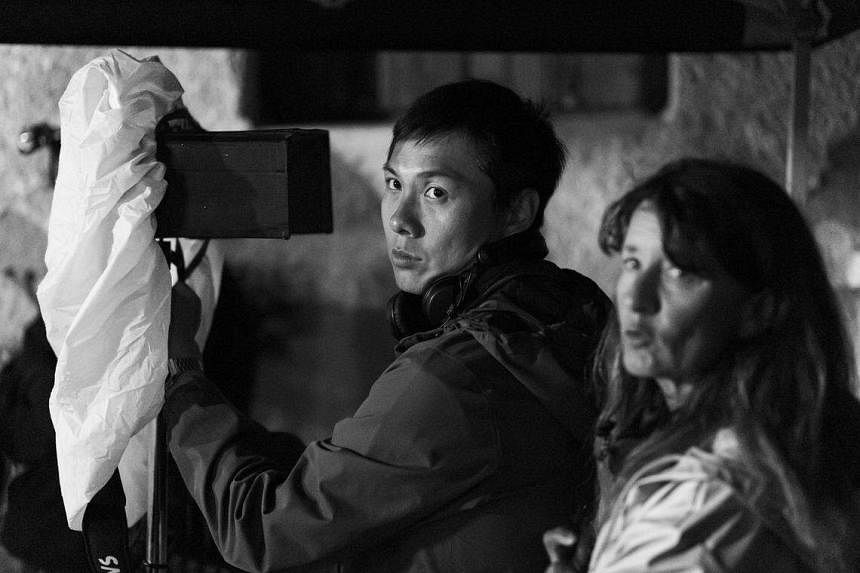
Perhaps it is also a break from the emotional intensity of shooting Drift.
The film is based on Alexander Maksik’s 2013 novel A Marker To Measure Drift, with the screenplay written by Maksik and Susanne Farrell. In the two years or so that Chen spent working with the duo to develop the script, he says he grew attached to the characters, especially that of Jacqueline.
“I was haunted by her. She stayed with me,” he says.
Seeing Erivo – who will next be seen opposite American singer-actress Ariana Grande as green-skinned witch Elphaba in the 2024 two-part film adaptation of the hit stage musical Wicked – bring Jacqueline to life was a “deeply emotional and cathartic experience”, he adds.
“If she was breaking down in a scene, I would be tearing up too, behind the monitor. So many of us invested so much of ourselves into this film.”
Anthony Chen’s film feats
Ilo Ilo
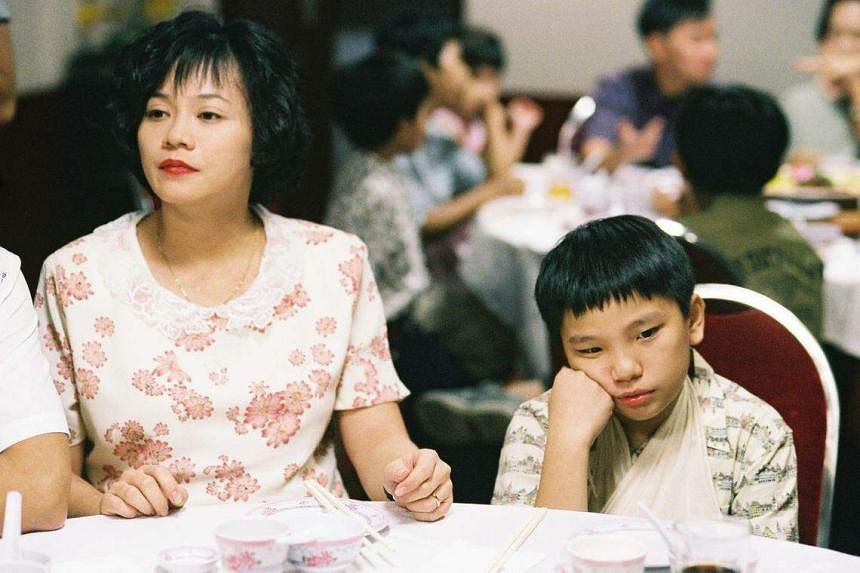
Chen’s first feature, a family drama about a Filipina domestic helper (played by Filipino actress Angeli Bayani) and her relationship with her Singaporean employers – in particular the son played by Koh Jia Ler and the mother played by Yeo Yann Yann – made the film-maker the first Singaporean to win the Camera d’Or award at the Cannes Film Festival.
After working with Yeo and Koh on this project, Chen reunited with them in his follow-up film. Ilo Ilo also established him as a creator specialising in character-driven stories about outsiders seeking refuge.
Wet Season (2019)
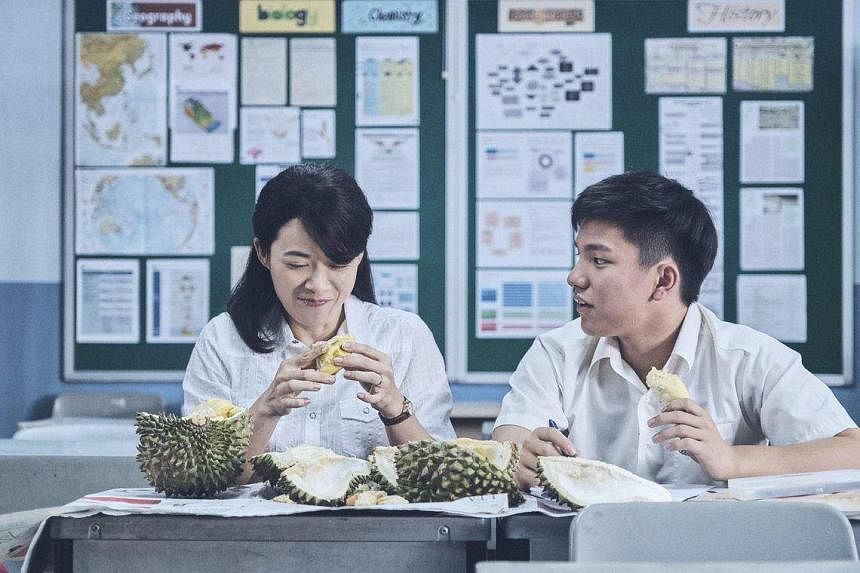
It took six years for Chen to release his sophomore picture. In this story, he uses the familiar trope of a lonely Chinese-language teacher (Yeo) forming a bond with the misfit student (Koh), but introduces a new element: a taboo-breaking sexual relationship forming between the pair.
Wet Season received six nominations at Taiwan’s Golden Horse Awards, with Yeo winning the Best Leading Actress award.
The Breaking Ice (2023)
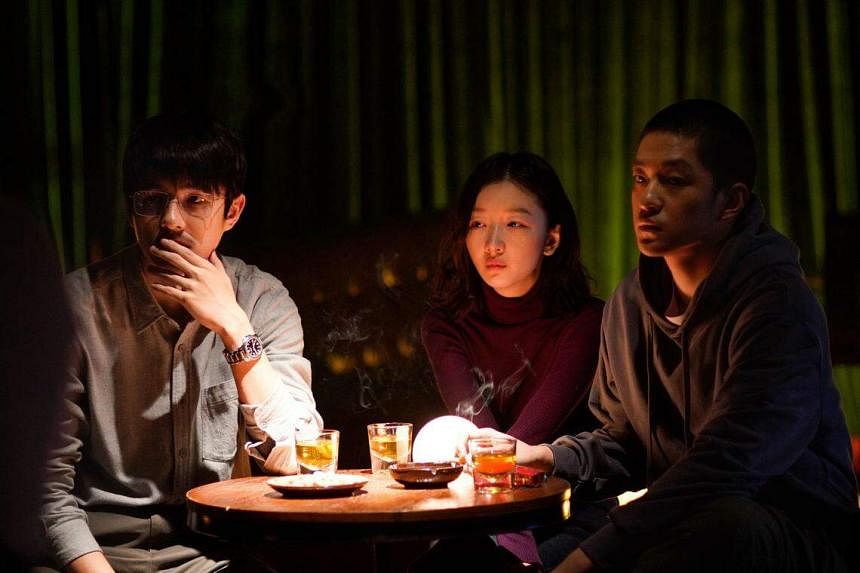
Filmed in China and featuring a cast of Chinese actors, Chen once again approached the topic of outsiderhood and belonging, this time with three young adult characters played by Zhou Dongyu, Liu Haoran and Qu Chuxiao.
Chen has said that the more relaxed and loosely structured feel of this drama was a reaction to his earlier, more controlled style of film-making.
The Breaking Ice earned him a nomination in the Un Certain Regard section of the Cannes Film Festival.
Drift (2023)
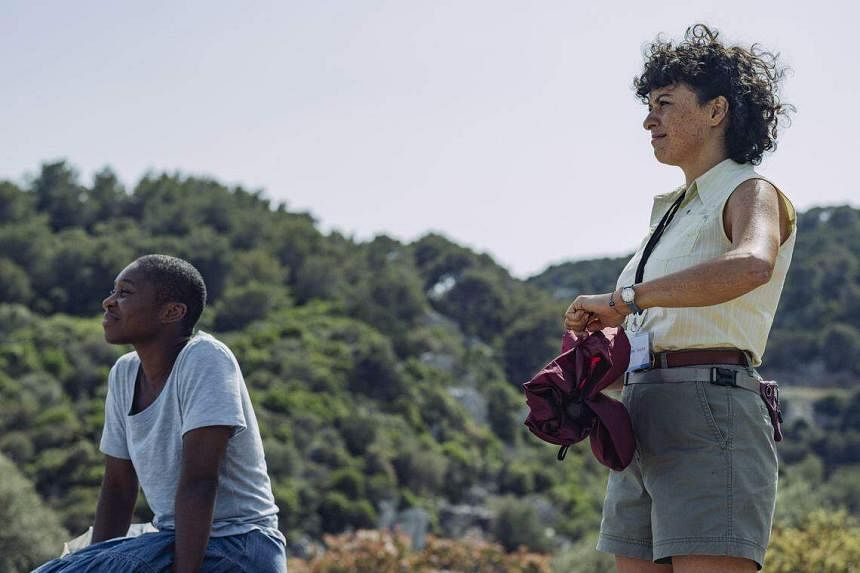
Technically, this drama is Chen’s third film, as it premiered at the Sundance Film Festival in January 2023, a few months before The Breaking Ice had its Cannes Film Festival premiere in May that year.
His English-language feature debut is also the first film in which he is not credited as a writer, although he has stated that he worked extensively with Drift’s screenwriters on the script.
Chen has said in previous interviews that he will devote himself only to projects that strike a personal chord with him, even if the stories originate from somewhere else.
“The only way I make films is with my heart, not so much with my head,” he tells The Straits Times.
We Are All Strangers (planned release in 2025)
Chen tells ST that this will be the third and final chapter of what he calls the Growing Up trilogy set in Singapore, which began with Ilo Ilo and continued with Wet Season.
He will reunite with Yeo and Koh in a story about relationships that come under pressure during the pandemic.
In a previous interview with ST, he had said he has always been fascinated by the connections forged between strangers.
“Kinship can be formed beyond blood ties. The idea of constructed families is a theme that I have explored in Ilo Ilo and Wet Season.”
